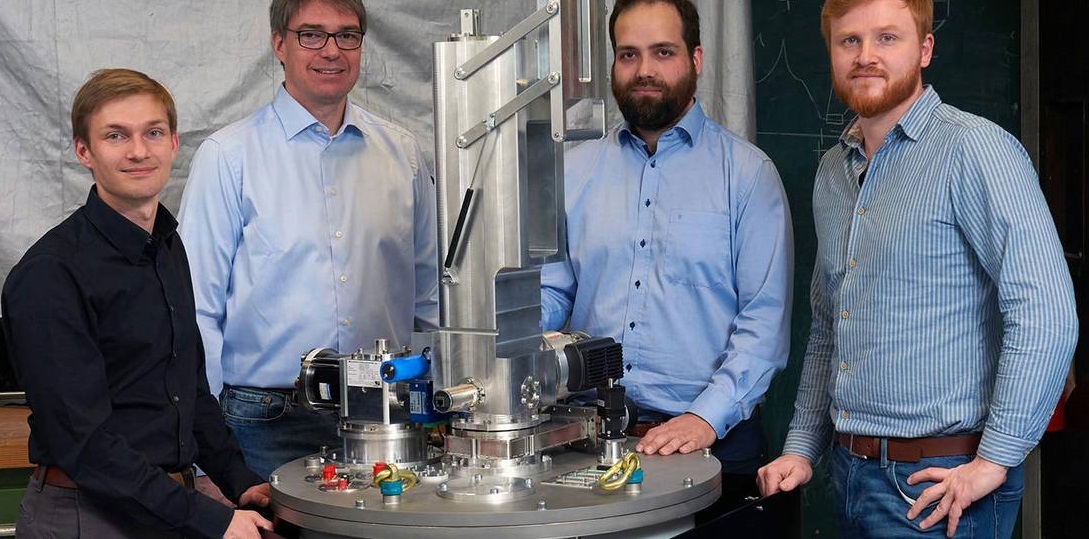Researchers Develop Permanent Magnetic Cooling System for Quantum Computers
Researchers from the Physics Department at the Technical University of Munich (TUM) announced this week that they developed a “permanent magnetic cooling system” for quantum computers that can bring the temperature in which qubits operate close to absolute zero.
Permanent Magnetic Cooling for Quantum Computers
Extremely low temperatures, such as those around the absolute zero value (0 Kelvin or about -273 degrees Celsius) are required for sensitive quantum operations. The cooler the temperature in which the qubits operate, the more stable the qubits are. Stability of qubits is critical for long-term usage of quantum computing systems.
Right now, quantum computing systems use liquified gases to cool down to extremely low temperatures. Before, to reach constant absolute zero temperatures an extremely rare and expensive isotope, helium-3, had to be used.
There are other magnetic cooling systems that can reach the required temperatures, but they only work for a limited time period. The TUM researchers’ solution is said to be permanent.
Magnetic Cooling System to Be Commercialized
As more companies and governments are becoming interested in developing quantum computing system these days, the demand for solutions that can keep those systems at such low temperatures has also increased at a rapid pace.
The TUM researchers, including Alexander Regnat, Jan Spallek, Tomek Schulz and Professor Christian Pfleiderer, have already created their own start-up company, kiutra, that will be selling the technology to those who are interested.
"We are the world's first commercial supplier of a cooling system that can magnetically achieve temperatures close to absolute zero (near -273°C) on a permanent basis. Our great advantage is that we do not need expensive helium-3. All we need is electricity," Regnat said in a statement.
Get Tom's Hardware's best news and in-depth reviews, straight to your inbox.
The team is already looking for new hires to accelerate the project's development.
Lucian Armasu is a Contributing Writer for Tom's Hardware US. He covers software news and the issues surrounding privacy and security.
-
bit_user Reply
A bit thin on details, here. Exactly what do they mean by "permanent"? I guess that you can run it indefinitely?Lucian Armasu said:Researchers from the German Technical University of Munich developed a permanent magnetic cooling system for quantum computers, making them more practical.
So, does it use some kind of ferrous particles, and somehow completely suspend their motion, in a magnetic field? I wonder whether/how that magnetic field might interact with the quantum computer, since I've read they're extremely sensitive to disturbance from EMI. -
bit_user Reply
Wikipedia says "accounts for 7.2 parts per trillion of the atmosphere." So, I'm skeptical that atmospheric extraction would ever be viable.Giroro said:I wonder if they can use it their widget to condense helium-3 from the atmosphere -
JamesSneed This a magnetic cooling solution that is permanent. The title "Permanent Magnetic Cooling for Quantum Computers" Is a bit misleading as some are going to wonder if it uses permanent magnets. This is good news since helium is highly depleted and keeps escaping into space. I wonder if we will see overclocking with magnetic solutions :)Reply -
Giroro Reply
Haha, I mean does it get cold enough. Figuring out how to get gas out of the upper atmosphere where the cocentration is (probably) higher is a different problem to eventually solve sometime between now and when underground helium runs out.bit_user said:Wikipedia says "accounts for 7.2 parts per trillion of the atmosphere." So, I'm skeptical that atmospheric extraction would ever be viable.
